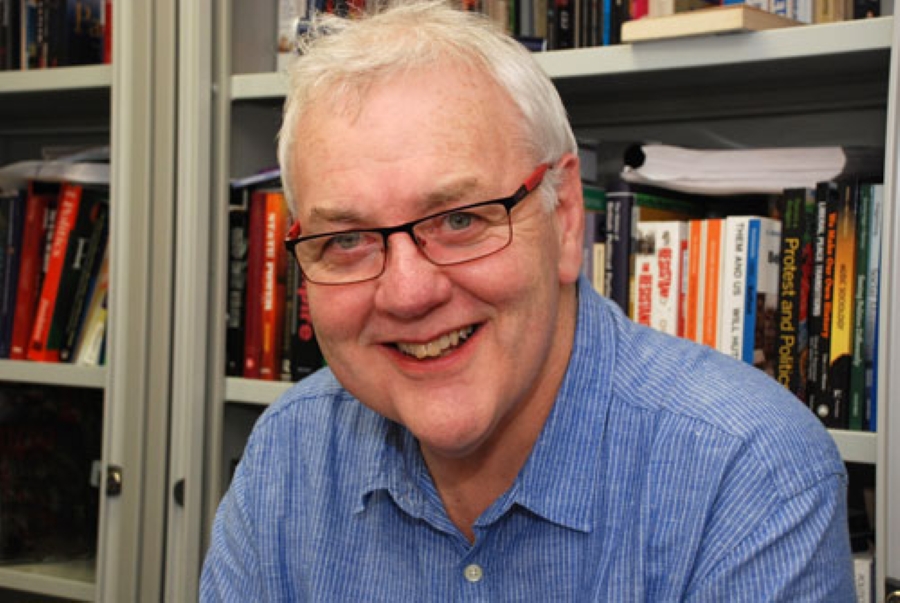CPCR Current Events
- Public Lecture: The burden of memory’ – collective identity, narrative and re-writing the past in Northern Ireland by Professor Jim McAuley
- Book Launch: Political Change Across Britain and Ireland
- CPCR Seminar by Dr Fatima el Issawi
- New Foundations Research Project
- CPCR hosts: Transitional Justice event
- (In)Access&Distance: A survivor/victim-centred analysis of transitional justice
- CPCR Film Screening: Wave Goodbye to Dinosaurs
- CPCR & CHA host: Covert warfare and the performance of humanitarian neutrality in Cold War Central America
- CPCR hosts: Two Nonviolent Actions A Day Keep the Dictator Away?
- CPCR & DFA host event: Mapping Peace and Conflict Research in Ireland
- CPCR hosts: The Women’s Activities in Armed Rebellion Project
- CPCR Annual Conference 2024
- CPCR Seminar: Invisible Men: The Injured Lives of Afghan Interpreters
- Talk4Peace/CPCR Seminar: Mechanisms for Inclusive Dialogue in Peacebuilding
- CPCR Seminar: I have to speak - Colombia and Uganda, Dr Evelyn Pauls
- CPCR publishes on "Mapping Diversity, Negotiating Differences"
CPCR Public Lecture: The burden of memory’ by Professor Jim McAuley

Public Lecture: The burden of memory’ – collective identity, narrative and re-writing the past in Northern Ireland by Professor Jim McAuley
When: 4pm 19th November in F301 Newman Building. RSVP by email to (opens in a new window)dawn.walsh@ucd.ie by 1pm on the 17th November.
Abstract
It is a truism, that history and memory are different. Memory is in a constant state of fluctuation and the process of remembering and forgetting fluid. People experience the past through both individual experience and collective memory to create a subjective view of historical reality. In Northern Ireland, as elsewhere, memory is open to assumption, appropriation and re-enactment often to meet contemporary political concerns. This reflects a constant struggle between conflicting interpretations of historical events, the determination of which serves to validate and legitimate the present.
In this way memory is continually fashioned, constructed and reconstructed as the past is reinterpreted. Historical memories are changed and distorted (often overtly so) to suit present purposes. These are transmitted across generations by an everyday ‘commonsense’ narrative, characterised by the attempt to ensure coherence and commitment amongst the group. Thus, perceptions of the Self and of others are formulated in struggles over identity which often involve people in a clash to appropriate a reconstructed past. Such notions are always created within the social arena, and through interactions with others (Jenkins, 1996) developed within specific social and political contexts (Howard 2000: 367 – 393).
People are not inactive in constructing their sense of identity, which is formulated and reinforced through processes involving the continuous reformatting of biographical and group experiences (Ricoeur 1984, 2004). By drawing on collective histories and the common narratives this paper will highlight how Ulster loyalists have created their own version of communal interpretations of the past and framed particular understandings, to interpret their perceived social circumstances, in ways which become central element to communal identity. The paper will highlight how distinct forms of belonging are understood and used to create and reinforce a marked sense of the politics of difference in Northern Ireland.
Brief bibliography
Jim McAuley is Emeritus Professor of Political Sociology and Irish Studies at the University of Huddersfield, UK and Adjunct Full Professor of Politics and International Relations at University College Dublin. He has taught in a multidisciplinary Social Science setting for many years, during which time he has produced 15 books, and over 150 book chapters, refereed articles and papers. His current research deals with a number of topics, focusing broadly on the consequences of post-conflict and peace processes and more broadly, identity construction, ethnic and political memory, violence prevention and concepts of radicalisation and terrorism.